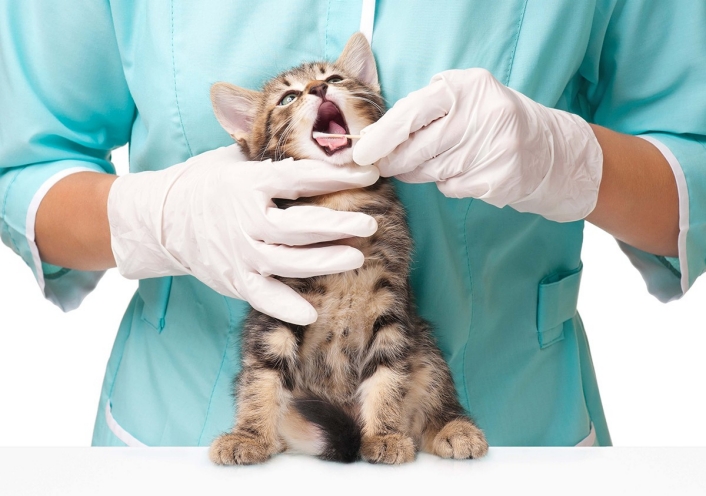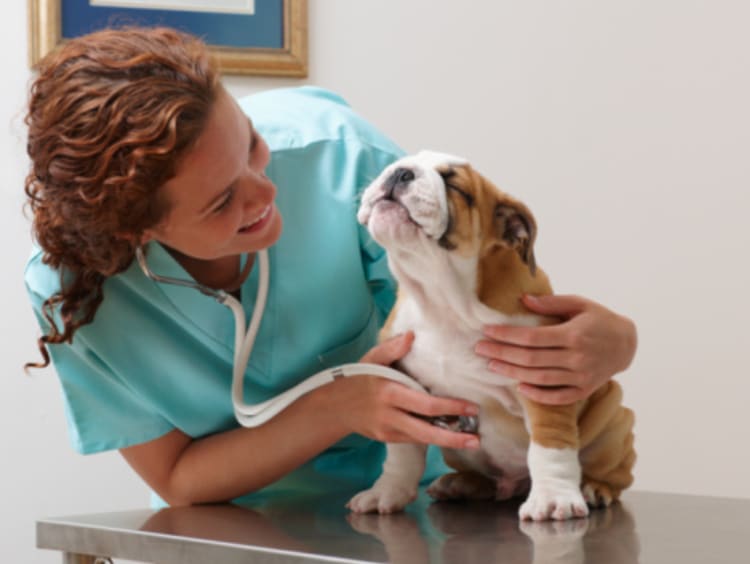Unveiling the Critical Duty of Veterinarians in Animal Health And Wellness
The multifaceted obligations of veterinarians expand much past the confines of conventional animal treatment, positioning them as essential factors to both specific pet health and wellness and more comprehensive eco-friendly stability. The ramifications of their work resonate through public wellness and wild animals preservation efforts, highlighting a complicated interplay typically overlooked.
Importance of Vet Care
Although several family pet owners might view vet care as a routine necessity, its significance expands much beyond plain examinations. Vet treatment plays a critical duty in making sure the overall wellness and well-being of pets, encompassing a broad selection of services that attend to both preventive and therapeutic needs. Routine veterinary visits permit for early detection of potential health and wellness concerns, thereby enhancing the possibility of effective treatment and recuperation.
Additionally, vets offer important guidance on nourishment, habits, and basic treatment, furnishing pet owners with the understanding needed to preserve their animals' lifestyle. Inoculations and parasite control are basic elements of vet treatment, protecting both specific animals and the wider area from zoonotic conditions. The know-how of vets is important in detecting and handling intricate clinical conditions, facilitating innovative medical treatments, and administering important emergency care.
On top of that, vet professionals contribute considerably to public health and wellness efforts by keeping an eye on condition frequency within animal populaces. Their duty includes making sure food safety with the wellness management of livestock, affecting the farming market and human wellness alike. Hence, veterinary treatment is indispensable to both pet welfare and public safety and security, highlighting its importance in contemporary society.
Functions in Disease Avoidance
Veterinarians play a critical function in condition prevention, working as both guardians of animal health and wellness and guards of public safety. Their knowledge contributes in determining, tracking, and regulating contagious illness that can influence both animals and human beings. Via regular wellness analyses and inoculations, veterinarians assist reduce the spread of zoonotic illness, which can have extreme implications for public wellness.
Furthermore, veterinarians engage in proactive education, informing pet proprietors and livestock manufacturers about ideal methods in health and biosecurity. These steps are crucial in stopping break outs, specifically in agricultural settings where close call between pets can help with condition transmission. Furthermore, veterinarians often collaborate with public health and wellness officials to track illness patterns and establish action approaches, making certain that potential wellness hazards are dealt with quickly.
Vets additionally carry out study to recognize condition devices and enhance diagnostic strategies, adding dramatically to the advancement of preventative medication. By promoting liable animal possession, vaccination programs, and normal veterinary examinations, they empower communities to take an energetic function in disease prevention. In significance, the diverse contributions of vets are vital in securing not just animal populations yet likewise the wellness of the broader neighborhood.
Contribution to Food Safety
Making sure food safety is a crucial facet of vet medication that directly influences public health. Vets play a vital function in the food supply chain, from farm to table, mitigating dangers related to foodborne ailments. Their competence is necessary in checking pet wellness, applying biosecurity actions, and overseeing the humane treatment of animals, which collectively add to the manufacturing of safe food items.

Furthermore, veterinarians inform farmers and food producers on best methods for animal husbandry and health, which better enhances food security. By teaming up with public wellness authorities, vets aid trace and control episodes of foodborne virus, consequently shielding consumer wellness. Their multifaceted payments are essential in maintaining the integrity and safety of our food systems.
Impact on Wildlife Preservation
The role of veterinarians expands past residential animals to encompass significant payments to wild animals preservation initiatives. These professionals are critical in shielding and managing wild animals populations, especially when faced with habitat loss, environment adjustment, and human encroachment. Veterinarians take part in various tasks, consisting of wildlife rehabilitation, population health assessments, and condition monitoring.
In wild animals rehab, vets provide treatment to harmed or ill pets, promoting their healing and successful reintegration right into their natural habitats. They additionally perform health and wellness assessments on wild populaces, which are essential for keeping an eye on the total health of communities. Animal Chiropractor Greensburg. By identifying and handling illness that can spread between wild animals and residential pets, veterinarians play a vital role in stopping possible outbreaks that might threaten both pet and human populaces
In addition, veterinarians take part in preservation techniques by recommending on best methods for environment management and varieties protection, frequently working together with preservation organizations and governmental companies. Their competence in pet health and welfare is vital view it now in developing policies that benefit not just wild animals yet also the biodiversity that sustains eco-friendly equilibrium. Via these efforts, vets substantially add to the conservation of wildlife and the ecosystems they populate.
Innovations in Vet Medicine
Current growths in veterinary medication have actually significantly improved the ability to resolve both residential and wildlife health challenges. Technologies in analysis technologies, such as sophisticated imaging methods and molecular diagnostics, enable veterinarians to identify diseases at earlier stages, ultimately improving treatment outcomes. For example, the application of PCR (polymerase domino effect) testing has actually reinvented the detection of contagious illness, enabling for quick and accurate identification of microorganisms.

Improvements in vaccine advancement, especially the use of recombinant and mRNA technologies, have additionally played a critical function in check this site out preventing break outs and handling zoonotic diseases. These vaccinations provide enhanced efficacy and safety profiles, benefiting animal populaces and public health and wellness alike.
Finally, the increasing emphasis on One Wellness initiatives emphasizes the interconnectedness of human, pet, and ecological health and wellness, promoting collaborative efforts among vets, doctor, and ecologists. This all natural method is important for aggressive administration and condition avoidance in a swiftly changing globe.
Final Thought
Finally, the diverse function of veterinarians prolongs much beyond traditional pet treatment, including illness prevention, food safety, and wild animals preservation. Their know-how not only improves the health and well-being of residential animals yet additionally safeguards public health and ecological balance. As innovations in veterinary medication remain to emerge, the significance of vets in advertising animal well-being and making sure sustainable practices becomes increasingly critical, highlighting their important payment to culture and the environment.

In addition, vets usually team up with public health and wellness authorities to track disease patterns and create action techniques, ensuring that prospective health hazards are addressed promptly.
By working together with public wellness authorities, veterinarians aid trace and control break outs of foodborne microorganisms, thereby protecting customer health. Their knowledge not just improves the health and well-being of residential pets but also safeguards public health and wellness and ecological balance.